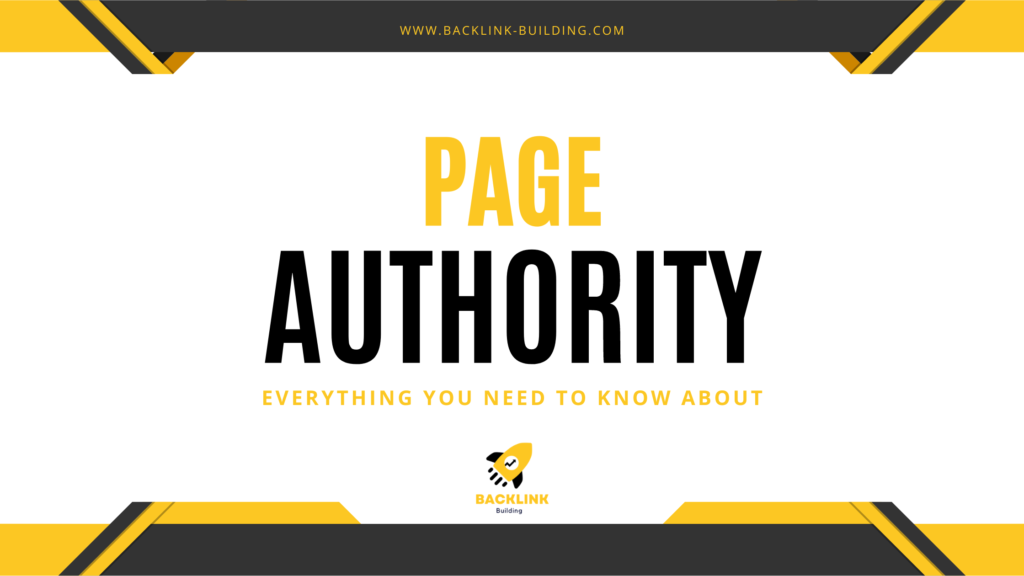
We have received several link-building and SEO metrics, such as page and domain authority. But what exactly is page authority? And how can we improve it for our pages? This blog post will discuss everything you need to know about page authorities! We’ll cover the origin of page authorities, their importance for SEO, and how you can improve your page’s score. Plus, we’ll answer some frequently asked questions about page authorities. So read on to learn more!
What Is Page Authority?
Page Authority (PA) is a metric developed by Moz to predict how well a specific webpage will rank on search engine result pages (SERPs). It is measured on a scale from 1 to 100, with higher scores indicating a greater ability to rank. PA is calculated based on factors like backlink profile, content quality, and overall SEO strength.
Key Factors Influencing Page Authority:
- Backlink Profile – The number and quality of inbound links pointing to the page.
- Content Quality – High-value, well-structured, and engaging content improves PA.
- Internal Linking – Proper internal linking distributes authority across the website.
- On-Page SEO – Optimized title tags, meta descriptions, and keyword usage.
- User Engagement Metrics – Bounce rate, time on page, and interaction signals.
- Domain Strength – A strong domain (with high DA) can indirectly boost PA.
Why Page Authority Matters in SEO
- Better Search Rankings – Pages with higher PA have a greater chance of appearing at the top of SERPs, leading to increased organic traffic.
- Competitive Advantage – PA helps compare the strength of specific pages against competitors, allowing for better optimization strategies.
- Improved Link Equity – High-PA pages pass stronger link juice when linking to other pages, benefiting the entire website’s SEO.
- Enhanced Content Visibility – A well-optimized page with high PA attracts more engagement, social shares, and backlinks, further boosting its ranking potential.
- Trust and Authority – Search engines prioritize authoritative pages with quality content, which improves user trust and engagement.
How To Improve Page Authority Score
Improve The Quality Of Your Page’s Content
Create valuable, high-quality content that other websites will want to link to. This will improve the quality of links pointing to your page.
Google has been more strict about the page content quality, so keep an eye on user engagement metrics like bounce rate and time on the page. It also considers page load speed, so make sure your page loads quickly and efficiently.
Build Backlinks
The number and quality of links pointing to a page play a significant role in page authority. So actively try to build more backlinks from reputable websites.
We will be discussing a few link-building methods in a later blog post. Still, some tactics include reaching out to industry experts for guest blogging opportunities and creating shareable content that others want to link to.
Regularly Update Your Page
Regularly updating and improving your page’s content can also increase its page authority. Search engines constantly crawl websites, so they will notice the updates and may consider the page more valuable.
Keep An Eye On The Competitor Page Authority
It can also be helpful to keep an eye on your competitors’ page authorities. Look at their backlinks and see if there are any opportunities for you to try to get a link from the same source.
You can also analyze their social media presence and see if there are any strategies that you can implement for your page. Social signals are also taken into account for SEO page authority . So, promote your page on social media and encourage others to share it.
Now that you know how to build page authority let’s discuss backlinks.
How Do You Build Backlinks With Page Authority?
As we mentioned before, the number and quality of backlinks to a page play a significant role in page authority. So, it’s essential to focus on building high-quality backlinks from reputable websites.
Here are four tactics for building backlinks with page authorities:
Guest Blogging
Reach out to industry experts and offer to write a guest blog for their website in exchange for a link to your page. This method is used by many companies and can be very effective if you choose the right websites to guest blog for.
It can also improve your page’s authority if the website you are guest blogging for has a high page and domain authority.
Broken Link Building
Find broken links on other websites and offer them a replacement link to your page. This tactic can be time-consuming but also lead to high-quality backlinks, as you provide a valuable service to the website owner by fixing their broken link.
This technique can be less disruptive than traditional outreach methods and lead to a long-term relationship with the website owner.
Resource Page Link Building
Many websites have a page dedicated to listing valuable resources in their industry. Reach out and offer your page as a resource for them to link to.
Having your page listed on a resource page can lead to high-quality backlinks and increase brand awareness, as your page will be exposed to a new audience. Well, always target websites with a high page and domain authority for this tactic.
Skyscraper Technique
Find popular content in your industry and create even better content. Then, reach out to websites linked to the original content and offer them your page as a more valuable resource.
This tactic can lead to high-quality backlinks and increase your page’s authority if the websites you reach out to have a high authority than yours.
Common Myths About Page Authority
Despite its importance in SEO, Page Authority (PA) is often misunderstood. Here are some common myths and the truth behind them:
1. Higher PA Guarantees Top Rankings
- Myth: A page with a high PA will always rank at the top of search results.
- Truth: While PA is an important ranking factor, search engines consider multiple elements like content relevance, user experience, and search intent. A high PA alone doesn’t guarantee top rankings.
2. Page Authority is a Google Ranking Factor
- Myth: Google uses PA as an official ranking signal.
- Truth: PA is a metric developed by Moz and is not directly used by Google’s algorithm. However, it helps estimate how well a page might perform in search results.
3. PA Increases Overnight
- Myth: A page’s PA can be improved instantly by adding keywords or backlinks.
- Truth: PA growth takes time and depends on acquiring high-quality backlinks, improving content, and maintaining SEO consistency.
4. Only Backlinks Influence PA
- Myth: PA is solely determined by the number of backlinks a page has.
- Truth: While backlinks are a major factor, PA is also influenced by content quality, internal linking, and user engagement metrics.
5. PA is More Important Than Content Quality
- Myth: A page with a high PA doesn’t need well-optimized or valuable content.
- Truth: Content is the foundation of SEO. Even a high-PA page won’t rank well if the content is outdated, irrelevant, or low-quality.
6. PA and DA Are the Same
- Myth: Page Authority (PA) and Domain Authority (DA) measure the same thing.
- Truth: PA evaluates individual pages, while DA measures the authority of an entire domain. A site can have a low DA but high PA for specific pages.
FAQs:
Q. How Often Is Page Authority Updated?
It is generally updated every month. However, it can also e frequently as new backlinks and search engines discover page updates.
Q. Is Page Authority The Only Factor For Ranking In Search Results?
No, It is only one aspect of SEO. Other factors, such as keyword usage and page loading speed, also affect search engine rankings.
Q. Can Page Authority Be Increased Overnight?
No, It is a long-term metric that takes time to grow. Building high-quality backlinks and regularly updating page content are crucial for increasing page authorities over time.
Final Thoughts
Now that you understand page authorities remember to focus on building high-quality backlinks and regularly updating your page content. These efforts will lead to higher page authority and improved search engine rankings.
If you have any questions related to this blog, then feel free to leave your questions in the comment section. We will be happy to answer you.
Thanks for reading:)


